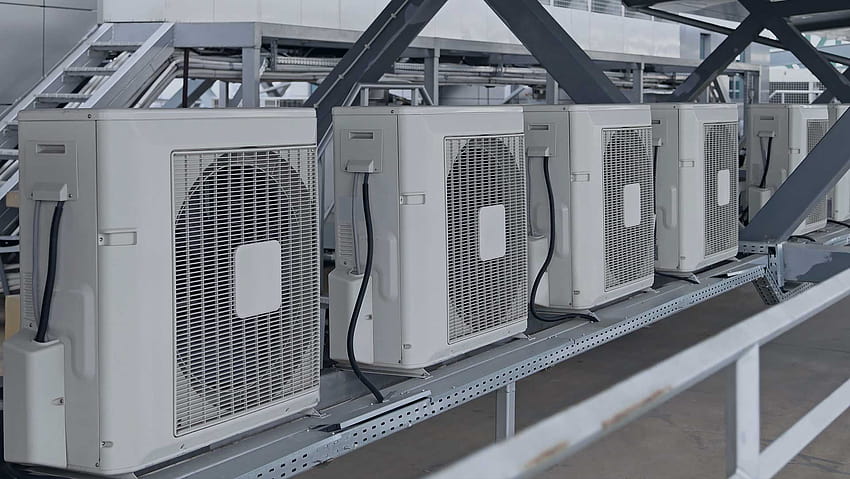Masters of Climate: Your Ultimate Guide to Heating and Air Conditioning
Masters of Climate: Your Ultimate Guide to Heating and Air Conditioning
Blog Article

Heating and air conditioning are essential components of our modern living spaces, ensuring comfort throughout the year, regardless of the weather outside. As the seasons change, our reliance on temperature control systems becomes increasingly apparent. From chilly winter nights to sweltering summer days, the right heating and air conditioning solutions can make all the difference in creating a pleasant and inviting home environment.
In this guide, we will explore the various types of heating and air conditioning systems available, their benefits, and how to maintain them for optimal performance. Whether you are looking to upgrade your current system, invest in energy-efficient options, or simply learn more about how these technologies work, this comprehensive resource will provide valuable insights to help you navigate the world of heating and air conditioning.
Energy-Efficient Home Heating Services
Understanding HVAC Systems
Heating, ventilation, and air conditioning, commonly known as HVAC, refers to the technology that provides thermal comfort and acceptable indoor air quality in residential and commercial spaces. HVAC systems are designed to maintain the internal environment of a building by regulating temperature, humidity, and air flow. These systems play a vital role in ensuring that indoor spaces are comfortable and that the air quality meets health standards.
The heating component of HVAC systems can utilize various methods, including furnaces, boilers, and heat pumps. Furnaces burn fossil fuels to generate heat, while boilers use water to heat the space. Heat pumps, on the other hand, transfer heat from the outside air or ground into the building during cold months and can reverse the process in summer for cooling. Each type of heating system has its benefits, and the choice often depends on factors like local climate, installation cost, and energy efficiency.
Air conditioning is crucial during warmer months, offering a respite from the heat. Central air conditioning systems distribute cool air through ducts, while ductless mini-split systems focus on targeted cooling without requiring extensive ductwork. Understanding these various heating and cooling methods helps homeowners and business owners make informed decisions about their HVAC choices, ensuring comfort while potentially reducing energy costs.
Energy Efficiency Tips
Improving the energy efficiency of your heating and air conditioning system can significantly reduce your utility bills and environmental impact. One of the simplest yet most effective ways to enhance efficiency is to ensure regular maintenance of your HVAC system. This includes changing or cleaning filters at least every three months, checking for duct leaks, and scheduling annual inspections with a qualified technician. A well-maintained system operates more efficiently, helping you save money in the long run.
Another key strategy is to invest in a programmable thermostat. These devices allow you to set specific temperatures for different times of the day, ensuring that your heating and cooling systems are not working overtime when you are not home. By adjusting the temperature when you are asleep or away, you can conserve energy while still enjoying a comfortable environment when you need it most. This simple update can lead to substantial savings on your energy bills.
Lastly, consider utilizing natural ventilation and shading to complement your heating and air conditioning needs. During milder months, opening windows during cooler parts of the day can help reduce reliance on your HVAC system. Additionally, using shades, drapes, or outdoor structures to block direct sunlight can help keep your home cooler in the summer, minimizing the demand on your air conditioning unit. These small changes can make a big difference in your energy consumption and enhance the comfort of your living space.
Maintenance and Troubleshooting
Regular maintenance is essential to keep your heating and air conditioning systems operating efficiently. Start with simple tasks like changing air filters every one to three months, depending on usage. Dirty filters can restrict airflow, making your system work harder and leading to increased energy costs. Additionally, check the outdoor units for debris and ensure they have enough clearance around them for proper airflow. Scheduling annual professional inspections can catch potential issues before they become major repairs.
Troubleshooting common problems can save you time and money. If your system is not heating or cooling effectively, first check the thermostat settings. Ensure it is set to the appropriate mode and temperature. If the system is running but not reaching the desired temperature, inspect the vents for blockages and ensure that the supply and return vents are unobstructed. Listen for unusual noises that may indicate a malfunction, and pay attention to any strange smells that could signal a problem.
When issues persist despite regular maintenance and troubleshooting efforts, it may be time to call a professional. Technicians can diagnose complex problems, like refrigerant leaks or electrical failures, that require specialized tools and knowledge. Always keep records of any repairs or maintenance performed, as this can help the technician understand your system's history and make informed recommendations for repairs or upgrades. Maintaining your heating and air conditioning systems not only extends their lifespan but also enhances your comfort in any season.
Report this page